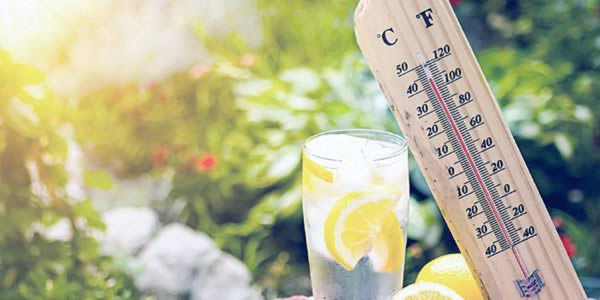SHARE WITH FRIENDS:
Man is created in such a way that his body temperature stays the same in the bitter cold and in the scorching heat. The human body has the ability to adapt to any climatic conditions. The dryness of the air, which is typical for the climate of Uzbekistan, and the moderate breeze help to dissipate heat from the body due to sweating and the body's ability to adapt to hot climates.
It should be borne in mind that the scorching heat of summer, especially in diseases of the cardiovascular system and overweight patients, can adversely affect the health and lead to the development of chronic diseases in them. Because in hot climates, the body loses a lot of fluid due to high temperatures. As a result, the cardiovascular system works harder.
Therefore, in order to prevent various unpleasant complications, it is necessary to rest and work in a timely manner in the heat and pay attention to the diet.
It is known that physical exertion increases the production of heat in the body. This causes the body to overheat. Therefore, the total physical labor activity carried out in the open air is carried out at a cooler time of the day (early in the morning at 11 o'clock00 until) or in the evening cool (17 o'clock00and - 2000 to). It is advisable to rest in a cool room at noon, that is, in the hottest time of the day.
Meals in the daily diet should consist of easily digestible foods. Fatty foods and sweets increase energy production in the body and cause the body to overheat. It also strains the activity of the gastrointestinal tract, which is weakened by heat. On hot days it is necessary to eat liquid foods, dairy products such as yogurt, yogurt, kefir, fresh fruits and vegetables. They replace water and essential nutrients, protein, vitamins and mineral salts that the body loses as a result of sweating.
Green tea quenches thirst. Its vitamins and minerals give a person strength. In addition, green tea kills disease-causing microbes in the gastrointestinal tract. Protects the body from dysentery (diarrhea) and other infectious gastrointestinal diseases.
Sugar-free compotes, iron, sour fruit juices are a strong thirst quencher, as well as help to compensate for the vitamins and minerals lost as a result of sweating. Sweet and dark fruit juices (apricots, peaches and grapes) on the contrary increase thirst.
Lemon tea keeps the body warm for a long time by first warming the body a little and then sweating profusely. It also helps the body maintain a normal water and salt balance.
Read more: ARE NATURAL MEDICINES PREFERRED OR ARTIFICIAL?
Artificial dyes in various sweet drinks and flavorful additives in a variety of colors, as well as sugars quench thirst. Consuming too much of them is harmful.
Never drink unboiled water. It contains various infectious microbes and viruses that cause diseases of the gastrointestinal tract, and they can cause typhoid fever, plague, viral hepatitis, diarrhea. Non-carbonated mineral water, boiled and cooled water should be drunk.
Natural fiber clothing is typical of the heat
First of all, everyone should wear clothes made of natural fiber fabrics that are breathable on hot days. These garments should be breathable, sweat-absorbing, and sun-repellent, widely sewn, and non-sticky. Yarn fabric has exactly this property.
Clothes made of black and brown fabric, on the other hand, are warm and they do not reflect sunlight. When choosing clothes, pay attention to the color of the fabric.
Under the influence of sunlight, the body produces vitamin D, which prevents rickets. However, prolonged exposure to direct sunlight without a hat can lead to sunburn, sometimes the development of cataracts in the eye. Failure to protect the skin in the scorching heat can lead to its burning, and the long duration of this process can also lead to skin cancer.
Children in particular are very sensitive to the negative rays of the sun. Therefore, great care should be taken to keep them in shady places in the summer. Wearing a wide-brimmed hat and sunglasses to protect the umbrella protects from the harmful rays of the sun.
Regular rise in air temperature can disrupt the body's adaptation process and lead to diseases that occur as a result of overheating of the body. If a person is struck by heat, his body temperature can rise too much. As a result, the person who is exposed to the sun will experience dizziness, fatigue, and sometimes fainting. This condition is observed in the elderly and children as a result of the slow adaptation of the body to high temperatures. The risk of heat stroke is also high, especially in people with diseases of the cardiovascular system. In hot stroke, first aid should be aimed at maintaining a normal body temperature. The patient develops nausea, dizziness, tinnitus.
Read more: The beautiful amber of autumn
